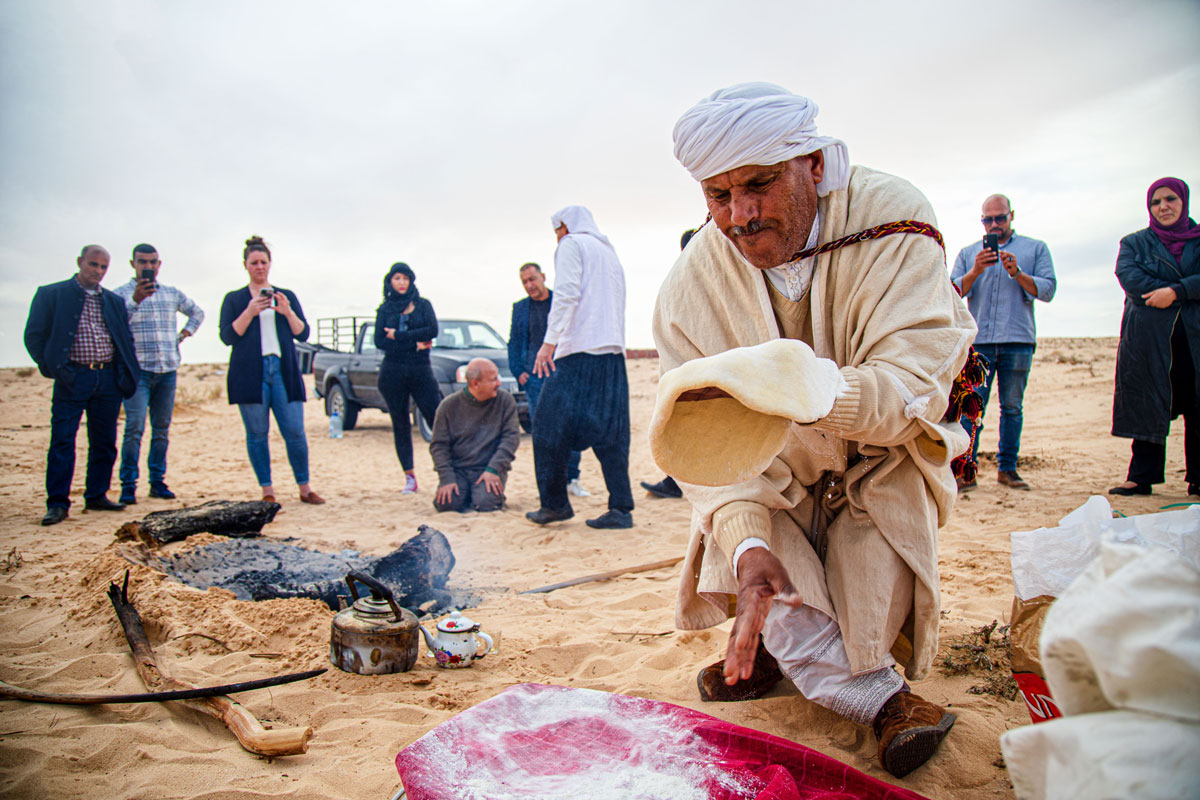In March 2022, the Smithsonian Center for Folklife and Cultural Heritage launched a new partnership with the United States Agency for International Development (USAID) Visit Tunisia Activity to develop community-based cultural heritage tourism.
Over the course of the five-year activity, the Center will provide participatory workshops, mentorship, and exchange opportunities and work with in-country partners to create cultural heritage tourism experiences that benefit both visitors and communities.
Drawing on the Center’s work on the My Armenia Cultural Heritage Tourism Program and ongoing work in Bosnia and Herzegovina with the USAID Turizam project, the Center will partner with the Visit Tunisia team to develop incubators for artisans and festivals and work intensively with tourism experiences to create community-based offerings that highlight Tunisia’s cultural heritage.
“Tunisia’s living culture is as diverse as its natural landscapes,” said Halle Butvin, director of special projects at the Center. “We are so excited to support communities in sharing their stories with the world—through local festivals, tourism, and Smithsonian platforms.”
To kick off the partnership, Butvin and Cultural Industries project coordinator Sloane Keller traveled to Tunisia in March 2022 to conduct research, plan activities, and lead training workshops for 230 cultural festival and event organizers. During the three-week trip, they led five workshops drawing on Smithsonian Folklife Festival modes of presentation, highlighting the importance of community-centered design and providing a toolkit for festival management. The trip also included fifty site visits to meet with artisans, youth associations, women’s collectives, and cultural heritage tourism experience owners and operators.

“Tunisia’s rich and diverse cultural heritage has yet to receive the attention and appreciation from international travelers it deserves,” said Leila Calnan, chief of party of the Visit Tunisia project. “Partnering with the Center will help USAID Visit Tunisia shine a light on the beautiful and vibrant living culture found throughout the country.”
The northernmost country in Africa, Tunisia sits at the axis of Africa, the Middle East, and Europe. Its complex history weaves together centuries of Indigenous and adopted cultural traditions. In partnership with the USAID Visit Tunisia Activity, the Center aims to highlight the country’s rich and varied cultural and natural diversity so visitors may experience Tunisian hospitality and its vibrant, contemporary cultural life through music, dance, food, craft, and more.
This partnership builds on the Center’s growing Cultural Heritage Tourism Initiative, which supports tradition bearers to engage in tourism and to ensure their communities benefit from sharing their cultural heritage with the world.
About USAID Visit Tunisia
The USAID Visit Tunisia Activity works with public and private sector partners to enhance and diversify the tourism industry, by improving international marketing and quality standards, driving investment, delivering technical assistance to promising tourism businesses, and helping develop innovative tourism products and experiences.
Bolstering Tunisia’s sustainable tourism markets, particularly in underserved regions, and expanding opportunities for women and youth in the industry, are central themes of our work. Visit Tunisia delivers assistance through four strategic lenses—marketing and communications, product development, enabling environment, and investment and innovation—to build a more competitive tourism industry.
About the Cultural Sustainability Program
The Center for Folklife and Cultural Heritage’s Cultural Sustainability program works with communities to bolster efforts to preserve and practice living cultural heritage in the face of social, economic, and political challenges. Through its work, the program works to understand and mitigate threats to cultural sustainability, scale our impact through partnerships, convenings, and thought leadership, and transform public understanding of cultural diversity.


